What is Lechon? ∙ The Philippines' Crispy, Juicy, and Beloved Roast Pig
8/27/20243 min read
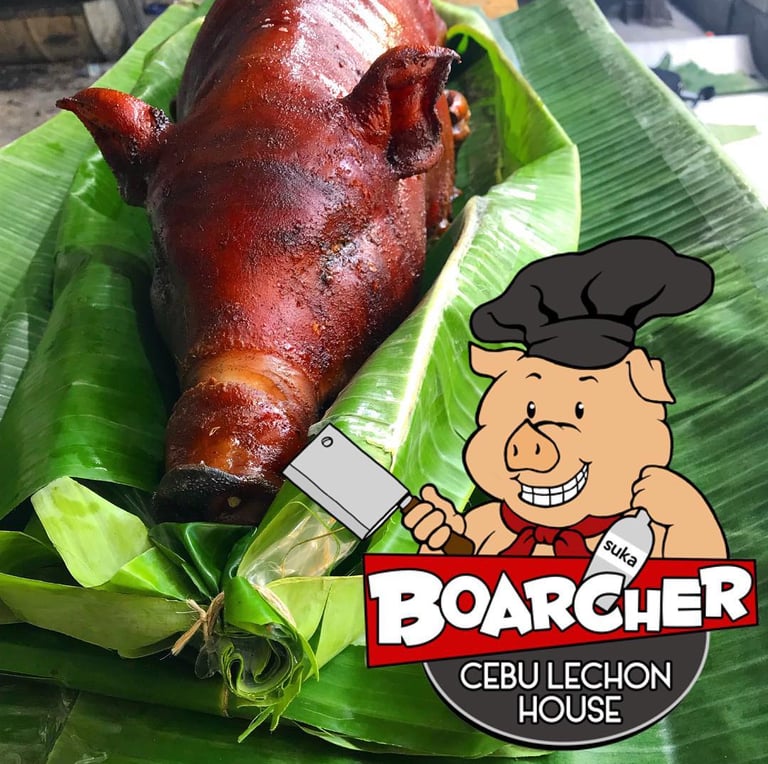

What is Lechon? ∙ The Philippines' Crispy, Juicy, and Beloved Roast Pig
Lechon, a Filipino culinary masterpiece, is a whole roasted pig that has become synonymous with the country's vibrant food culture. This traditional dish, often served during special occasions like fiestas and weddings, is a testament to the Filipinos' love for hearty, flavorful, and communal dining experiences.
How to Roast Lechon: The Art of Lechon Making
The process of making lechon is a labor-intensive affair that requires skill, patience, and a deep understanding of the pig's anatomy. Here's a breakdown of the key steps involved:
Selecting the Pig: The ideal lechon pig is a young, succulent animal with a balance of meat and fat.
Preparing the Pig: The pig is cleaned, gutted, and marinated with a mixture of spices and herbs. This marinade, often made with garlic, onions, salt, and pepper, imparts a unique flavor profile.
Roasting: The marinated pig is then stuffed with herbs and spices and placed on a spit. It is slowly roasted over a charcoal fire, turning it continuously to ensure even cooking. The skin is often scored or brushed with oil to achieve a crispy, golden-brown exterior.
The Crackling: One of the most coveted parts of lechon is the crispy skin, or crackling. It's achieved through a combination of slow roasting and careful temperature control.
Process of Roasting Lechon
Roasting lechon requires careful attention to temperature and time. The goal is to achieve a crispy exterior while keeping the meat moist and tender. This is often accomplished through a combination of direct heat, indirect heat, and basting.
Types of Lechon: Lechon's Regional Variations
While the basic concept of lechon remains consistent throughout the Philippines, there are regional variations that reflect the unique culinary traditions of different areas. For example:
Cebu Lechon: Renowned for its tasty, flavorful, succulent meat and crispy skin, Cebu lechon is often considered the gold standard.
Manila Lechon: Know for its crispy skin and usually eaten with "sarsa" to enhance the eating experience.
Lechon Innovations
While traditional lechon remains popular, chefs and food enthusiasts have experimented with innovative variations, such as:
Stuffed Lechon: The pig is stuffed with various fillings like sausages, rice, or vegetables.
Lechon Belly: This cut features a thick layer of crispy skin and succulent meat. Its Cebu Lechon version is also commonly known as "Cebuchon".
Lechon Kawali: Deep-fried lechon belly slices, often served with a dipping sauce.
Lechon continues to evolve, adapting to changing tastes and culinary trends while preserving its cultural significance. Its enduring popularity is a testament to its deliciousness, versatility, and deep-rooted connection to Filipino identity.
Lechon and Filipino Culture
Lechon's significance in Filipino culture extends beyond its deliciousness. It is often associated with:
Hospitality: Serving lechon to guests is a sign of generosity and welcome.
Celebration: Lechon is a staple at weddings, birthdays, and other festive occasions.
Community: Sharing lechon fosters a sense of togetherness and belonging.
In conclusion, lechon is a culinary gem that showcases the Philippines' rich food heritage. Its crispy skin, juicy meat, and flavorful marinade make it a beloved dish both within the country and among international food enthusiasts. Whether it's enjoyed during a grand celebration or as a simple family meal, lechon continues to delight and satisfy palates around the world.
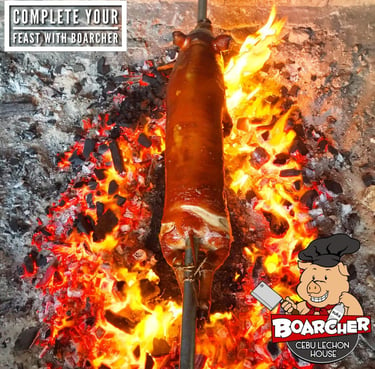

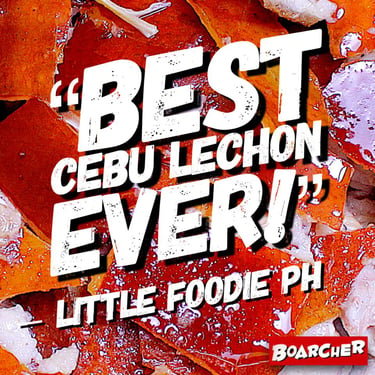

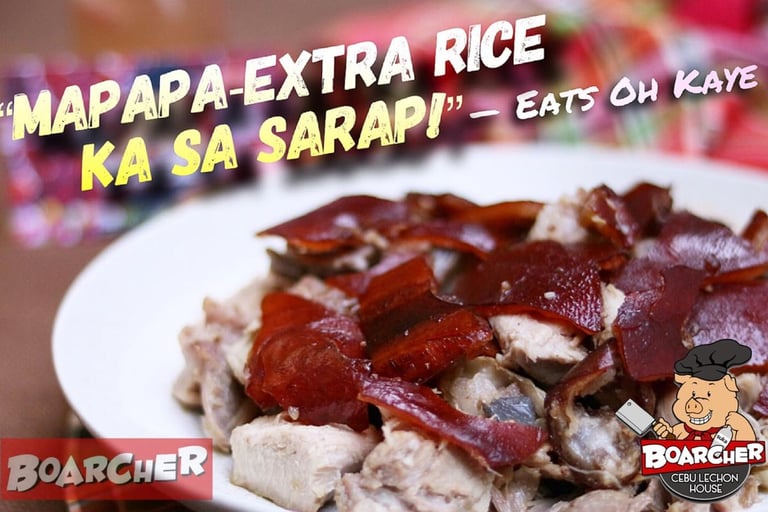

24/7 CEBU LECHON DELIVERY
Authentic 24/7 Cebu Lechon delivery service in Greater Metro Manila.
Join our email newsletter for exclusive freebies ∙ promos & discounts!
Contact us
© 2025 All rights reserved
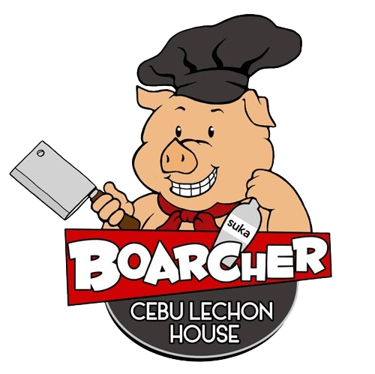

"COMPLETE YOUR FEAST WITH BOARCHER"
